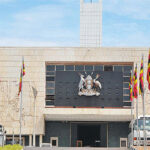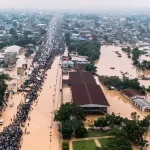South Korea will hold a snap presidential election on June 3, acting President Han Duck-soo announced Tuesday, following last week’s historic decision by the Constitutional Court to uphold the impeachment of former President Yoon Suk Yeol.
Yoon was impeached by parliament in December after his unexpected and controversial declaration of martial law—a move he claimed was necessary to counter “anti-state forces” and threats from North Korea. The Constitutional Court, however, found his actions to be unconstitutional and politically motivated, triggering his removal from office and the requirement for an election within 60 days.
“The country must quickly heal from the wounds and move upward and forward,” Han said during a televised address, expressing regret over the leadership crisis. “I sincerely apologise for the confusion and distress caused to our people.”
Yoon’s ouster has plunged South Korea into political turbulence, revealing deep fractures in the nation’s democratic institutions. His declaration of martial law in a time of relative peace sparked national outrage, with critics calling it a thinly veiled attempt to maintain power amid growing political opposition and scandal.
As Yoon now faces separate criminal charges of insurrection, political attention has turned to the race for his successor.
Already, several prominent figures have declared their candidacies. Labour Minister Kim Moon-soo resigned from his post on Tuesday to formally launch his campaign. Meanwhile, veteran politician Ahn Cheol-soo—who has contested in three previous presidential elections—confirmed his intention to run again.
However, all eyes are on opposition leader Lee Jae-myung, who narrowly lost to Yoon in the 2022 presidential race. A recent Gallup Korea poll placed Lee at the front of the pack with 34% approval, suggesting strong public support for his return bid.
The upcoming election is expected to be one of the most closely watched in South Korea’s modern political history, with global implications for regional security, diplomacy with North Korea, and relations with key allies such as the United States and Japan.
As the nation heads into a crucial campaign period, the political landscape remains tense—but for many South Koreans, it also represents a chance to restore democratic stability.







